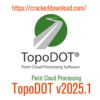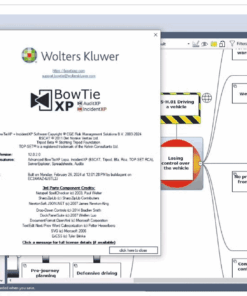Synopsys Sentaurus TCAD 2024
€0.00
Sentaurus TCAD 2024 license
Synopsys Sentaurus TCAD 2024 cracked version unlimited download
Synopsys Sentaurus TCAD 2024 is a cutting-edge suite of tools designed for Technology Computer-Aided Design (TCAD) simulations, widely used in the semiconductor industry.
Synopsys Sentaurus TCAD 2024 cracked version unlimited download sentaurus TCAD 2024.09
sentaurus TCAD 2024.09 Synopsys Sentaurus TCAD 2024 is a cutting-edge suite of tools designed for Technology Computer-Aided Design (TCAD) simulations, widely used in the semiconductor industry. It enables engineers and researchers to model, simulate, and optimize semiconductor devices, processes, and materials at various levels—from atomic-scale physics to full-device performance. Sentaurus TCAD is an essential tool for semiconductor design, process development, and manufacturing optimization.
Below is an overview of Synopsys Sentaurus TCAD 2024, including its key features, enhancements, and applications:
Key Features of Sentaurus TCAD 2024, sentaurus TCAD 2024.09
1. Process Simulation
Sentaurus TCAD includes advanced process simulation tools to model semiconductor fabrication steps. These tools help predict how physical and chemical processes affect device structures.
- Sentaurus Process :
- Simulates ion implantation, diffusion, oxidation, epitaxy, etching, deposition, and lithography.
- Supports advanced 3D process modeling for complex geometries.
- Includes calibrated models for next-generation materials like SiC, GaN, and other compound semiconductors.
- Enhancements in 2024 :
- Improved accuracy for advanced nodes (e.g., sub-3nm technologies).
- Support for novel materials such as 2D materials (e.g., graphene, MoS₂) and high-k dielectrics.
2. Device Simulation
Device simulation tools analyze the electrical, thermal, and optical behavior of semiconductor devices under various operating conditions.
- Sentaurus Device :
- Solves fundamental equations like Poisson’s equation, continuity equations, and energy transport equations.
- Models carrier transport, quantum effects, and parasitic effects.
- Supports advanced device architectures such as FinFETs, GAAFETs, nanosheets, and TFETs (Tunnel Field-Effect Transistors).
- Enhancements in 2024 :
- Enhanced quantum mechanical models for tunneling and ballistic transport.
- Improved support for non-silicon-based devices (e.g., GaN HEMTs, SiC MOSFETs).
3. Advanced Materials and Physics
Sentaurus TCAD 2024 incorporates state-of-the-art models for emerging materials and physics phenomena.
- Material Models :
- Comprehensive libraries for silicon, compound semiconductors, and insulators.
- Support for strained silicon, heterostructures, and bandgap engineering.
- Physics Enhancements :
- Accurate modeling of hot-carrier effects, impact ionization, and self-heating.
- Advanced mobility models for low-dimensional materials.
4. Thermal and Mechanical Analysis
Sentaurus TCAD includes tools for simulating thermal and mechanical effects in semiconductor devices.
- Thermal Simulation :
- Models heat generation, conduction, and dissipation in devices.
- Predicts thermal hotspots and their impact on performance and reliability.
- Mechanical Stress Analysis :
- Analyzes stress-induced effects on carrier mobility and device performance.
- Supports strain engineering for enhanced device characteristics.
5. Optical and Photonic Simulations
For photonic and optoelectronic devices, Sentaurus TCAD offers specialized tools:
- Optical Simulations :
- Models light propagation, absorption, and emission in semiconductor materials.
- Supports photovoltaic devices, LEDs, lasers, and photodetectors.
- Enhancements in 2024 :
- Improved coupling between optical and electrical simulations for better accuracy in optoelectronic devices.
6. Machine Learning Integration
Sentaurus TCAD 2024 introduces machine learning (ML) capabilities to accelerate simulations and improve predictive accuracy.
- ML-Driven Optimization :
- Uses ML algorithms to optimize device designs and process parameters.
- Reduces simulation time by predicting outcomes based on historical data.
- Data Analytics :
- Integrates with Synopsys’ broader ecosystem for data-driven insights.
7. Improved User Interface and Workflow
The 2024 release focuses on enhancing usability and productivity:
- Graphical User Interface (GUI) :
- Streamlined workflows for setting up and running simulations.
- Intuitive visualization tools for analyzing results.
- Automation :
- Scriptable interfaces (Python, Tcl) for automating repetitive tasks.
- Batch processing capabilities for large-scale simulations.
8. Multi-Scale and Multi-Physics Simulations
Sentaurus TCAD supports multi-scale and multi-physics simulations to address complex interactions in modern devices.
- Multi-Scale Modeling :
- Bridges atomistic, continuum, and system-level simulations.
- Enables seamless integration of quantum, classical, and macroscopic models.
- Multi-Physics Coupling :
- Combines electrical, thermal, mechanical, and optical simulations for holistic device analysis.
9. Reliability and Aging Analysis
Reliability is critical for semiconductor devices, especially in automotive and aerospace applications.
- Degradation Models :
- Simulates aging effects like BTI (Bias Temperature Instability) and TDDB (Time-Dependent Dielectric Breakdown).
- Predicts long-term device performance and failure mechanisms.
- Enhancements in 2024 :
- Improved models for high-power and high-temperature applications.
10. High-Performance Computing (HPC) Support
Sentaurus TCAD 2024 leverages HPC resources to handle computationally intensive simulations.
- Parallel Computing :
- Optimized for multi-core CPUs and GPUs.
- Scalable performance for large 3D simulations.
- Cloud Integration :
- Supports cloud-based simulations for faster turnaround times.
Applications of Sentaurus TCAD 2024
- Semiconductor Process Development :
- Optimize fabrication steps to reduce cost and improve yield.
- Explore new materials and process flows.
- Device Design and Optimization :
- Model next-generation transistors (FinFETs, GAAFETs, etc.).
- Optimize power devices (SiC MOSFETs, GaN HEMTs).
- Emerging Technologies :
- Simulate quantum devices, neuromorphic computing, and spintronics.
- Explore 2D materials and nanoscale devices.
- Photonic and Optoelectronic Devices :
- Design LEDs, lasers, photodetectors, and solar cells.
- Optimize light-matter interactions.
- Reliability and Failure Analysis :
- Predict device lifetime and failure modes.
- Mitigate risks in harsh environments.
- Research and Academia :
- Investigate novel device concepts and materials.
- Train students and researchers in semiconductor physics.
System Requirements
The system requirements for Sentaurus TCAD 2024 depend on the complexity of the simulations and the scale of the models. Typical requirements include:
- Operating System : Linux (Red Hat, CentOS, Ubuntu) or Windows (via WSL or virtual machines).
- Processor : Multi-core Intel Xeon or AMD EPYC processors.
- RAM : Minimum 32 GB (64 GB or more recommended for large simulations).
- Graphics Card : OpenGL-compatible GPU for visualization.
- Storage : SSD with sufficient space for simulation data (TB-scale storage may be required for large projects).
Why Upgrade to Sentaurus TCAD 2024?
- Support for Cutting-Edge Technologies : Stay ahead with tools for advanced nodes, novel materials, and emerging device architectures.
- Improved Accuracy : Enhanced models and algorithms ensure reliable predictions.
- Increased Productivity : Automation, ML integration, and HPC support reduce simulation time.
- Future-Proofing : Align with industry trends and regulatory requirements.
how to find cracked version sentaurus TCAD 2024.09 full crack download
Related products
Uncategorized
Cad/Cam
unlimited find
Uncategorized
Uncategorized
Geology
engineering softwares
Uncategorized
Biomedical
unlimited find
Uncategorized
Uncategorized
Uncategorized
Uncategorized
Oil and Gas
Uncategorized
Mathematical
Mining Industry
Science Research
Uncategorized
Uncategorized
Uncategorized
Uncategorized
Science Research
Uncategorized
unlimited find
engineering softwares
Uncategorized
Science Research
unlimited find
Uncategorized
Science Research
Uncategorized
Simulation
engineering softwares
Simulation
Uncategorized
unlimited find
Uncategorized
Uncategorized
Uncategorized
Geology
Mathematical
















































